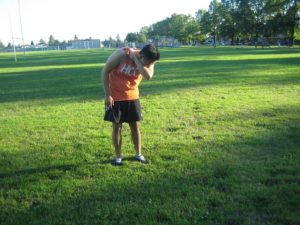A dry nose is a usual indication of adverse environmental conditions and a side effect of certain medications. The nose requires a certain humidity level to function properly and extremely dry or warm conditions can cause a dry nose. Low humidity, hot and dry climates and even air conditioning can result to dryness within the nose.
The condition is a usual side effect of some medications such as decongestants and antihistamines. Many individuals experience dryness of the nose from overuse of these medications.
Accompanying symptoms

Dry nose might be accompanied by other symptoms that tends to vary on the underlying cause. The usual nasal symptoms that might arise include the following:
- Bleeding
- Nasal congestion
- Diminished sense of smell
- Warmth, redness or swelling
What are the usual causes?
Various medications can trigger side effects including a dry nose. Decongestants, antihistamines and antibiotics typically result to a dry nose. Overuse of drugs used to alleviate congestion particularly nasal sprays can dry out the nose.
Environmental conditions with low humidity can also cause a dry nose. Excessive heat or arid conditions could not provide enough humidity for the nasal passages and end up dry. It is important to note that the dryness of the nasal passages is not ideal for the respiratory tract since the nose serves as the main humidifier of the inhaled air that moves into the lungs.
What are the possible complications?
Since a dry nose can be due to a serious ailment, if treatment is delayed, it can lead to serious complications and lasting damage. If the underlying cause is determined, it is vital to follow the treatment plan.
The usual complications of nasal dryness include the following:
- Pharyngitis
- Laryngitis
- Spread of infection
- Sinusitis
- Recurrent episodes of bleeding
- Poor quality sleep
